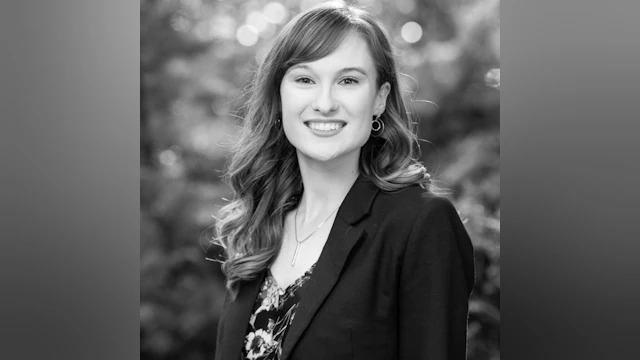Pretty much anyone who knows me also knows that I've recovered from an eating disorder. As an eating disorder therapist, I’d shout it from the rooftops if I could! Why? Because in the midst of my eating disorder, I felt ashamed of who I was and felt like there was no way out. I thought a lot about suicide. In my work with clients today, I see this pattern play out similarly. Therefore, I’d love to share with you a bit about my story and my recovery from shame, suicidal ideation, and my eating disorder – in hopes that it will help someone else find life beyond their eating disorder.
Before I continue sharing my story, it’s important for you to know that if you are experiencing an eating disorder or thoughts of suicide, please know you don’t have to struggle alone. There is help out there to put you on a path of recovery. If you are worried about someone else, please reach out and let them know you care and want to help them get help.
One of the landmark turning points for me on my journey was when I watched Brene Brown’s Ted Talk, “Listening to Shame.” In this powerful presentation, Dr. Brown shares the truth that, “Shame is the most powerful master emotion. It’s the fear that we aren’t good enough.” Shame is the “intensely painful feeling or experience of believing that we are flawed and therefore unworthy of love and belonging.” When I was in the midst of my eating disorder, I truly felt unlovable. I thought that if people saw the real me, the true me, the defective me – I could never be accepted.
It may not surprise you, then, to hear that I also thought a lot about suicide. It turns out, suicidal ideation and death by suicide are far too common in the eating disorder community. Research suggests that up to one third of people with Anorexia Nervosa or Bulimia Nervosa have attempted suicide. Depending on the eating disorder, people are up to 18 times more likely to die by suicide than the general population. Like so many people who think about suicide, I believed there was no help for my struggle. I am here today to tell you that I was wrong and that getting help is possible!
I learned in my recovery journey that it is a lie that I could not be loved. Secrecy, silence, and judgment kept my shame alive. I began to combat shame by letting others in. Instead of isolating and using eating disorder behaviors all day, I began to reach out for help from eating disorder treatment providers. Treatment for eating disorders addresses the whole individual, not just your relationship with food. Many people who struggle with eating disorders also experience depression, anxiety and other mental health concerns, and it’s important we seek specialized providers.
While going through treatment, I learned to share the thoughts I was embarrassed of with others, and learned that my feelings weren’t so unique to me after all. I saw that there is a shared humanity to us all – that we have struggles and doubts, and that’s what makes us human. I learned I wasn’t the only one. And the shame couldn’t survive.
My recovery from shame (and consequently, my eating disorder) fueled my passion to become an eating disorder therapist today. It is my life’s mission to walk alongside clients and meet them with empathy. No one is too broken to be unworthy of love and connection. No one. And every single human on the planet is deserving of care.
Shame can be a powerful, mean voice that prevents us from seeking the help we deserve. It can tell us to not trust others, or that we are not able to recover. But with support, that voice can be silenced so not one more individual needs to experience eating disorders or thoughts of suicide.
If you are living in secrecy, silence, and shame with an eating disorder please know you are not alone. And you don’t have to be alone in it anymore. If you or a loved one is struggling, please reach out. The National Alliance for Eating Disorders offers a free, therapist-staffed helpline to provide education and referrals to eating disorder treatment. We also have a website called findedhelp.com. There, you can look up eating disorder therapists, dietitians, doctors, and treatment centers all over the United States. In addition, The Alliance also offers free, weekly, therapist-led virtual support groups for individuals experiencing eating disorders, as well as groups for those that support and care for people experiencing eating disorders. To sign up or learn more, visit allianceforeatingdisorders.com or call 866-662-1235. We are here to listen, support, and connect you to all levels of care.
Recovery is possible, and it’s happening. And it can for you too.
Dr. Katie Mittelstaedt (She/Her) is a Senior Postdoctoral Fellow at National Alliance for Eating Disorders, where she provides outpatient care to uninsured/underinsured individuals. Dr. Mittelstaedt’s passion for treating eating disorders stems from her own recovery from eating disorders, and she utilizes her lived experiences to combat weight stigma, gender norms, and sizeism in her clinical practice.
National Alliance for Eating Disorders
findEDhelp.com
866-662-1235 or [email protected]
